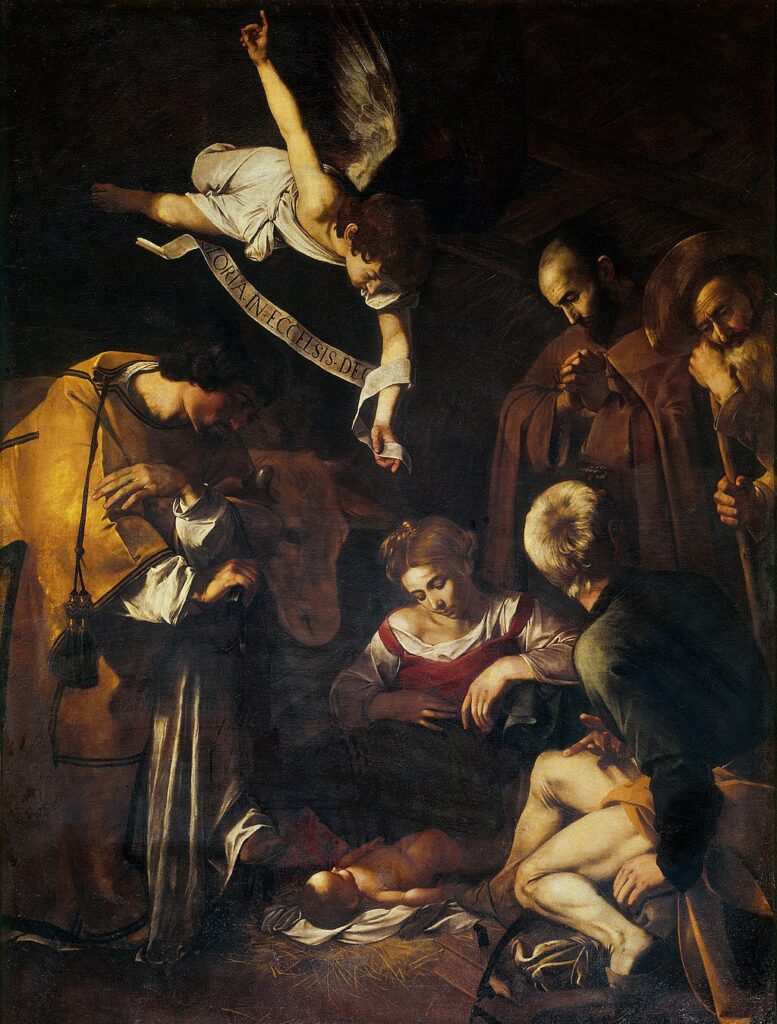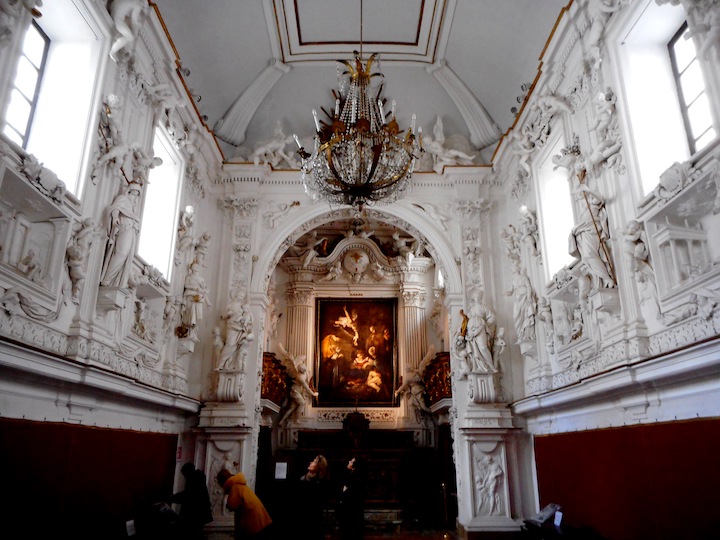Today is the feast of St. Lawrence of Brindisi (1559-1619). As a Capuchin theologian, I have a special affection for my Capuchin confrere. Lawrence was a great preacher, but also a great teacher and theologian – though not known as much as he should be today. Pope Leo XIII canonized him in 1881, and in 1959 Pope John XXIII declared him a Doctor of the Church, the “Apostolic Doctor.” That title accentuates both his theological acumen, as well as his zeal in preaching the Gospel.
In the Kingdom of Naples, Giulio Cesare Russo was born in Brindisi to a family of Venetian merchants. At a young age, he showed a gift for oratory and was chosen to preach a short sermon on the infant Jesus during the Christmas season. Upon joining the Capuchins, he took the name Lawrence and studied at the University of Padua. He was ordained a priest at twenty-three. An accomplished linguist, besides Italian, he spoke fluently Latin, Hebrew, Greek, German, Bohemian, Spanish, and French.
By the time he was thirty-one, Lawrence held important positions within the Capuchin Order – provincial of the province in Tuscany and definitor general of the order in Rome. Because he spoke Hebrew, Pope Clement VIII asked him to preach to the Jews of Rome, and he did so with great love and respect. As part of the Catholic Counter-Reformation, Lawrence established Capuchin friaries in Germany and Austria, which brought back many Protestants to the Catholic faith.
Some today may think this inappropriate, but Lawrence, having established a friary in Prague, became the chaplain for the army of Rudolf II, the Holy Roman Emperor. In that capacity, holding high a crucifix for all the soldiers to see, Lawrence led the army to victory over the Muslim Turkish siege of Székesfenhérvár in Hungary. At that battle, the Cross, and not the Crescent, won the day.
This exploit is not the normal calling of a humble Capuchin preacher and theologian, but Lawrence thought of it as simply necessary to defending the faith and furthering the cause of the Gospel. Subsequently, Lawrence became papal nuncio to Bavaria and then to Spain. In 1619, on his sixtieth birthday, Lawrence died in Lisbon.
Amid all the above activity, Lawrence never stopped being a preacher and theologian. His lectures and writings are contained in fifteen huge folio volumes. Though much of his academic work would only be of interest to theologians, there is one topic that has caught the attention of ordinary Catholics – his teachings on St. Joseph.

Lawrence preached four sermons for the feast of St. Joseph. In all of them, he promoted the idea that Joseph holds third place in the heavenly hierarchy – following upon Jesus and Mary. In his first sermon, which is the only one quoted here, Lawrence declares that, in any kingdom, the king and queen possess the greatest glory. In God’s kingdom, Jesus is the king of heaven and earth, and his mother, Mary, is the queen of heaven and earth. They shine like the sun and the moon.
As the husband of Mary and the foster father of Jesus, Joseph, then, is rightly third in rank:
He is, therefore, rightly called just, for if that star is brighter and more splendent which is closer to the sun, the fountain of all light, then since Christ is the Sun of Justice, that saint is endowed with the more perfect holiness who is closer to Christ. The Virgin Mary, accordingly, is the holiest of all the saints and angels. After Mary, who is closer to Christ than Joseph? She is his mother, but he is his father. Though not his natural father, Joseph still is his legal father. Though not his father by generation, he was his father in his upbringing, his care, and the affection of his heart. It seems to be, therefore, that Joseph is clearly that holiest of all the saints, holier than the patriarchs, than the prophets, than the apostles, than all the saints.
God the Father has given to Joseph the necessary graces whereby he is able to love and care for the Father’s incarnate Son, Jesus. As God the Father eternally loves his eternal Son, so Joseph cherishes and watches over the Father’s Son on earth. Joseph, for Lawrence, takes the place of God the Father here on earth. He is the earthly replication or image of the heavenly Father. Joseph, as the foster father of Jesus, is the grace-filled earthly shadow of the heavenly Father. And for these reasons, it is right and proper that Joseph ranks third in the heavenly court.
• Joseph was present when Mary gave birth to Jesus. When the shepherds hastened to Bethlehem, “they found Mary and Joseph, and the babe lying in the manger.” (Luke 2:16)
• When Herod attempted to kill the Christ child, “behold, an angel appeared to Joseph in a dream and said, ‘Rise, take the child and his mother, and flee to Egypt, and remain there till I tell you; for Herod is about to search for the child to destroy him.’” (Matthew. 2:13) Joseph immediately obeyed.
• Upon Herod’s death, the angel again appeared to Joseph in a dream, and informed him that it was safe to return to Israel, but when he heard that Archelaus governed in Judea, and warned again in a dream, he took Jesus and Mary to Nazareth in Galilee. (Matthew 2:19-23)
Because Joseph was the guardian of Jesus and Mary, Pope Pius IX, in 1870, declared him to be the Patron and Protector of the Universal Church. St. Lawrence of Brindisi would have been thrilled with this designation, for he ardently promoted devotion to Joseph as the one who took God the Father’s place here on earth. Joseph was the watchful eye and the protecting hand over the Holy Family. Although the Gospels never record anything that St. Joseph said, he is still the silent guardian of Jesus and his Mystical Body, the Church, and thus the protector of us all.
__________
















